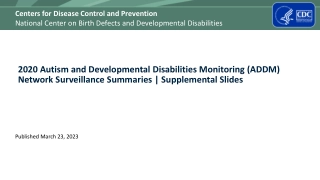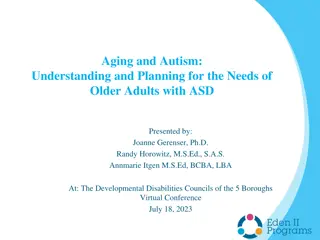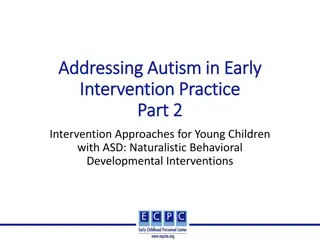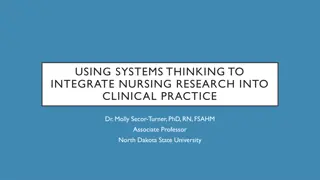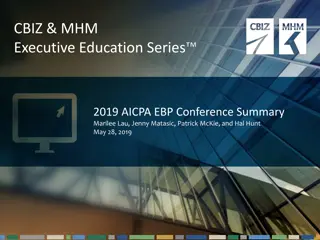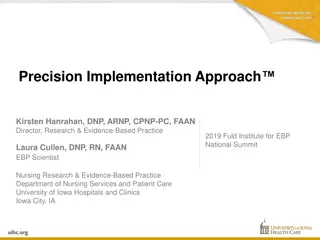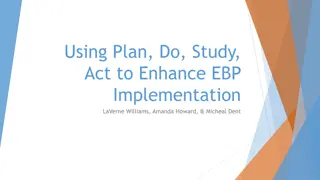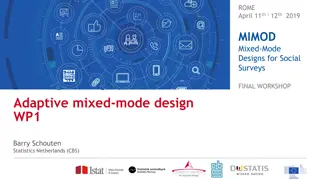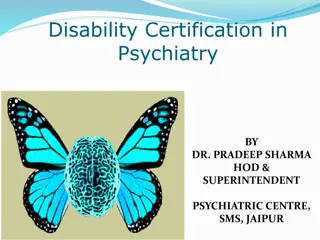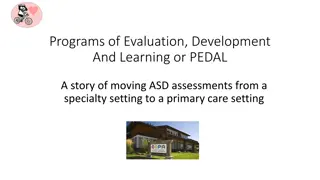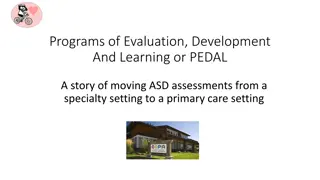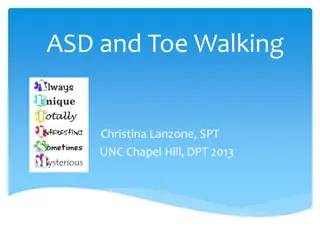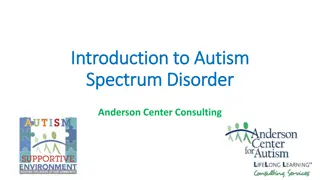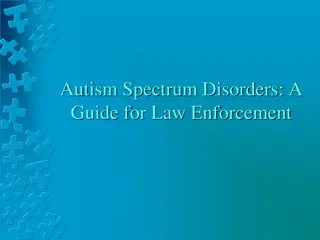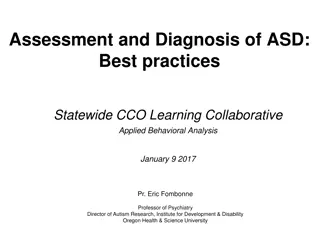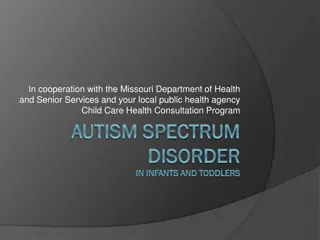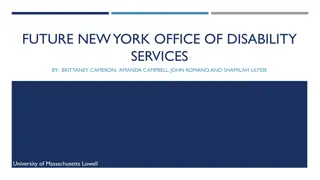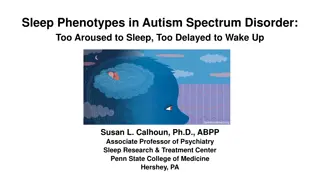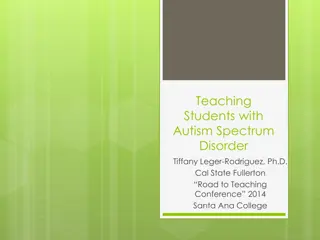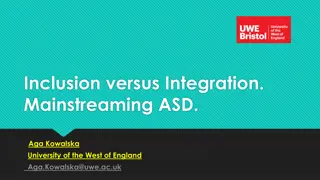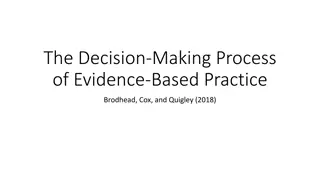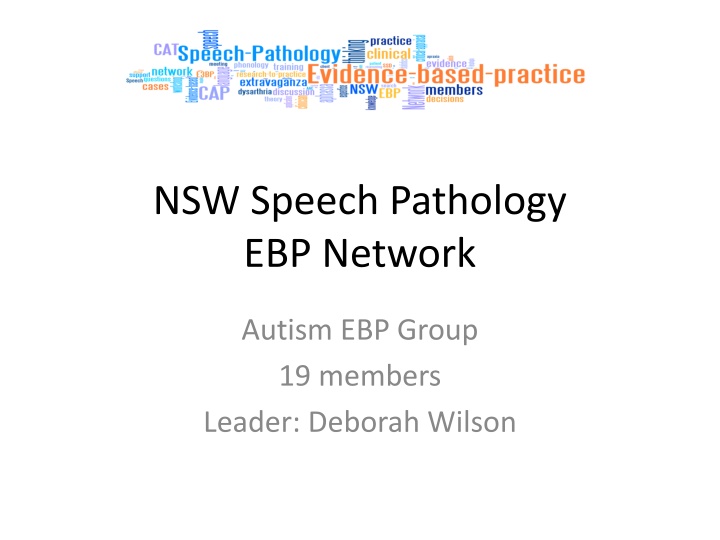
Enhancing Social Skills in Children with Autism using Video Modelling: Research Summary by NSW Speech Pathology EBP Network
Discover the efficacy of video modelling for improving social skills in children on the Autism Spectrum through a comprehensive review of research studies. Video self-modelling shows moderate to strong effects on specific social skills such as greetings, giving compliments, and following game rules. Findings suggest the potential benefits in therapy and the importance of considering individual factors and peer interactions. Implications for clinical practice highlight the effectiveness of technology-based interventions and the need for additional support for long-term skill maintenance.
Download Presentation

Please find below an Image/Link to download the presentation.
The content on the website is provided AS IS for your information and personal use only. It may not be sold, licensed, or shared on other websites without obtaining consent from the author. If you encounter any issues during the download, it is possible that the publisher has removed the file from their server.
You are allowed to download the files provided on this website for personal or commercial use, subject to the condition that they are used lawfully. All files are the property of their respective owners.
The content on the website is provided AS IS for your information and personal use only. It may not be sold, licensed, or shared on other websites without obtaining consent from the author.
E N D
Presentation Transcript
NSW Speech Pathology EBP Network Autism EBP Group 19 members Leader: Deborah Wilson
Clinical Question For children on the Autism Spectrum is video modelling (particularly video self- modelling) more effective than treatment as usual for improving social skills?
What did we find? Authors Number of participants Research Design Bellini et al., (2016) 3 Case series Buggey, (2012) 3 Single-case multiple- baseline design Due as et al., (2019) 3 Multiple probe single subj ect design Huaqing Qi et al., (2017) 24 studies (18 met criteria with 53 participants) Systematic review Kabashi et al., (2017) 3 Multiple probe single subj ect design Litras et al., (2010) 1 Single case study Macpherson et al., (2015) 4 Single-case multiple- baseline design Wilson, (2012) 4 Single-case design
Summary of papers found 8 relevant papers published since 2010 identified. These included: 74 participants across these studies. 7 case studies of level III-IV evidence 1 systematic review of level I evidence.
Clinical bottom line Video modelling and video self-modelling can be considered EBP with moderate to strong effects on specific social skills for children on the Autism Spectrum. Some of the specific social skills taught were: greetings, giving compliments, initiating play, following game rules Things to consider: Unknown factors impact on effectiveness for specific individuals. Evidence looked at preschool and primary age children within settings with typically developing peers to interact with. Generally small groups in articles
Implications for clinical practice Video self-modeling is an effective tool to use in therapy. Technology has made this easier than ever to implement. IPads/ smart phones are easily accessible and socially accepted. Video modelling may improve client wellbeing and progress by reducing the social demands. Video modelling might be applicable for use across different types of skills- transitions, conversation skills, engaging in social games. It can be assumed that natural settings where opportunities for interaction with typically developing peers is ideal. Studies were conducted in natural setting where peer interactions might happen. Students and communication partners may benefit from additional training and support outside of this intervention. Long term maintenance and generalisation of skills taught is unclear as it has not been studied.
What is our clinical group currently working on/plans for the future? We are considering the topic for next year. Possible topic includes Autism and... literacy, social programs, intervention method/setting. Continuing to meet 5 times per year via teleconference, with 2 articles to be discussed each meeting.

